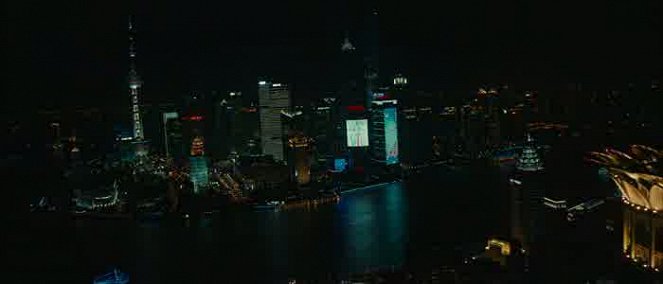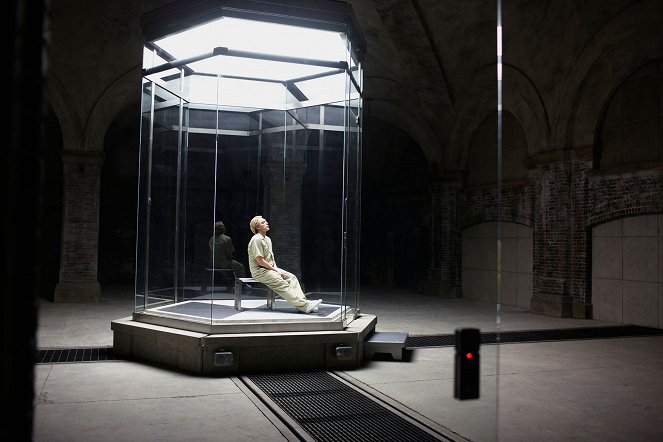Directed by:
Sam MendesCinematography:
Roger DeakinsComposer:
Thomas NewmanCast:
Daniel Craig, Judi Dench, Ralph Fiennes, Javier Bardem, Naomie Harris, Bérénice Marlohe, Ben Whishaw, Helen McCrory, Albert Finney, Rory Kinnear, Ola Rapace (more)VOD (4)
Plots(1)
Bond's loyalty to M (Judi Dench) is tested as her past returns to haunt her. 007 must track down and destroy the threat, no matter how personal the cost. When Bond's latest assignment goes gravely wrong and agents around the world are exposed, MI6 is attacked forcing M to relocate the agency. These events cause her authority and position to be challenged by Mallory (Ralph Fiennes), the new Chairman of the Intelligence and Security Committee. With MI6 now compromised from both inside and out, M is left with one ally she can trust: Bond. 007 takes to the shadows — aided only by field agent Eve (Naomie Harris) — following a trail to the mysterious Silva (Javier Bardem), whose lethal and hidden motives have yet to reveal themselves. (20th Century Fox UK)
(more)Videos (39)
Reviews (20)
I’m very lukewarm towards Bond films (“it’s just Bond”), but the hero of Skyfall is not James Bond, it’s Sam Mendes. Skyfall is perfect craftsmanship, no more than that. Skyfall is such perfect craftsmanship that I can’t avoid being enthusiastic about it. I truly enjoyed the climax in the foggy Scottish Highlands. A brilliant Barden.
()
A film about the importance of large sailboats in times of fast ships and a romantic dream of a return, thanks to which Bond survived half a century. A narcissistic reflection of what I have for years adored Bond films for. Sail on, heroic heart, made weak by time and fate, but strong in will to strive, to seek, to find and not to yield.
()
Six years ago, 007 was rebooted in a darker, Batmanesque tone. And while its batty neighbors brought their story to a closed trilogy, the team behind the brooding James Bond also joined the continuity of three installments. It's personal here too, and thanks to Javier Bardem's Silva, surprisingly powerful. It's precisely from his appearance onscreen that Skyfall finally picks up speed, while in the first act, it almost goes backwards. The island, the metro, and especially Scotland, however, leave no breathing room and make Daniel Craig's intense physical acting a fitting path to success. In the end, the birthday Bond is rather successful. Better and more tightly knit than the sometimes breathless Quantum of Solace, worse than the deliciously aging Casino Royale, but given my general adoration of the artistic side, I have to shake my head a little due to several plotholes and yet another strangely sluggish opening act. However, this format still works for me, especially since I know it can still go one step further.
()
Mendes. Sam Mendes. He tries to combine a classic Bond movie and everything that goes with it in the first half, with a total denial of everything Bondian in the second. He tried and succeeded with both. It's a pity, of course, that the two halves don't exactly work together as one coherent whole. They are gorgeous in themselves. Both first and second. The non-Bondian one doubly so. But if you've ever wondered what Bond would look like as directed by Nolan, Mendes will give you a pretty clear answer to that, because this movie is “Nolanesque", completely; as far as plot, characters (there’s even a role for Caine; see Kincade), action, length, the old-fashioned technical side... A special thanks goes to the "invisible" duo Deakins and Newman, because what they bring to this movie is not seen every day in the world of blockbusters.
()
This review is licensed to SPOIL. “Were you expecting an exploding pen?” Whereas Bond learned to use his memory in Quantum of Solace, now he uses his memories to delve much deeper into his own inner self (which the filmmakers subsequently use to delve deeper into MI6). His journey back to himself typically begins with a descent into the depths (the title sequence from the great beyond) and the subsequent retreat into the darkness (the action scenes contain frequently suspicious falling). Most of the film takes place underground and/or at night, like in one of the good old noir flicks that Mendes quotes from a few times (The Lady from Shanghai, The Third Man). The whole opening action sequence recalls earlier times, serving together with the following minutes as a final farewell to the straightforwardly action-oriented approach that was a guarantee of guilty-pleasure entertainment. That is surely no coincidence, because thanks to its atypical length, excellent gradation and the number of vehicle replacements, the prologue could easily serve as the film’s final attraction. The circular dramaturgy, with the beginning functioning as the end and the end functioning as the beginning, comes to fruition in the final act, which is surprising due to its static nature compared to the extremely dynamic start. ___ The defensive character of the final action sequence has its justification in the next task that Bond is confronted with – he must literally defend his old-fashioned methods against geeks, bureaucrats and the white-haired devil, who wickedly attacks one of the guarantees of the agent’s immortality, namely his manhood, which is thematised throughout the film. The astonishingly subversive (to the heterosexual majority) torture scene lasts an unusually long time compared to previous such scenes, and the homosexual innuendos in it are delivered comprehensibly enough to elicit defensive laughter from cinema-goers. As is customary for ambitious blockbusters, Silva has questionable motivations and it is very difficult to capture the evil of his jellyfish-like character (jellyfish-like shapes can be seen not only in the title sequence, but also during the shadow-play action set in Shanghai) and, at the same time, he is a complete antithesis to the positive protagonist (though he dresses in white, while Bond wears a black suit). He shares a notional mother with the orphaned Bond, and whereas Silva is in the role of the rejected son, James is the prodigal son. Though the name (M) remains the same, the mother is replaced by the father, from whom the fatherland is derived, which explains the greater emphasis on the “Englishness” of the film (the row of coffins draped with British flags, Turner’s painting, the Tennyson quote, the proud shots of London) and in which Bond finds the meaning of his other activities – in service to his country. The archetypal conflict between Cain and Abel is thus added to the motif of the Odyssean journey. The more daring among us could interpret the film as a family melodrama – it is probably the first Bond movie in which we see 007 not only with a bottle of beer, but also with a tear in his eye. As in the previous films, the women are melodramatically presented as victims, though they are no longer entirely passive. ___ Skyfall is rich in meaning not only in psychoanalytical terms (MI6 as the superego, Silva as the dark subconscious and Bond serving as the ego between them), as specialists in cultural studies can surely also find something for themselves in it (this time, the exotic landscapes are replaced by a symbol of modern China and the former colony). Mainly, however, Skyfall is an intelligent psychological-spy thriller. With captivating establishing shots to set the mood, clearly executed action scenes (a pleasant change after Marc Forster’s orgies of editing), non-black-and-white characters and a powerful soundtrack (though it’s a shame about the uneconomical use of John Barry’s musical motif), delightfully unobtrusive allusions to previous Bond films and some other celebrated works of cinema (Bond’s arrival in futuristic Hong Kong is reminiscent of the long car ride in Tarkovsky’s Solaris; the drive to Skyfall is filmed like the prologue to The Shining). The shots between action and reaction, when Bond is only just discovering new locations, best represent the filmmakers’ attempt to bring the agent closer to the real world. The opening shot is repeated multiple times; when we enter uncharted territory with Bond with the camera behind his back, a new world literally opens up before us (and Bond). It can be assumed that 007 will even more openly address the problems of today’s world in subsequent films, after he has dealt with his own private traumas. 90%
()
(less)
(more)



Ads